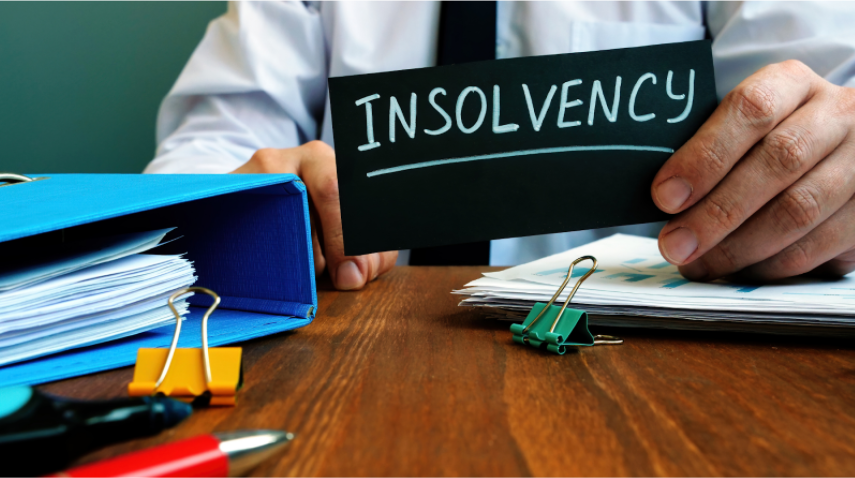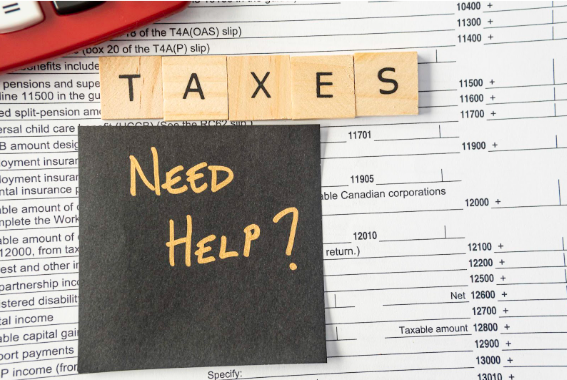
Insolvency – What is it and How Does it Work?
If you’re falling behind on your bills, you might be insolvent and not know it. Talking to a debt expert can help you determine your situation and what options you might have. Not being able to pay your bills and falling behind is scary, but with the right steps and support, you can get through it.
What is Insolvency?
If you are insolvent, you are unable to pay your bills. It could also mean that the value of your debts is higher than the value of your assets. In other words, you owe more than you own.
Insolvency isn’t a procedure – it doesn’t discharge you from debt or give you a payment plan. It’s a state you are in that usually means it’s time to make a decision on your next steps to avoid excessive collection actions or other negative actions against you.
You can determine you’re insolvent early on and avoid excessive collection calls or wage garnishment. If you wait, though, your options become more limited. Here’s what you must know about determining if you’re insolvent and what you can do.
How to Tell if You’re Insolvent
It can be difficult to tell if you’re insolvent so it’s best to speak with a debt expert. This professional can run a few tests to determine what level of insolvency you have.
You could be:
- Income insolvent – You make less money after taxes than your expenses require
- Asset insolvent – The true value of your assets are less than your liabilities
Options When You’re Insolvent

f you find that you’re insolvent, you have a few options. The credit counselors at EmpireOne can help you choose among your options.
Create a Budget
If you have the cash flow, but just use your income incorrectly, you can course-correct, fixing your budget by reducing your spending and allocating your funds where necessary. Most people that are insolvent are past this point, but it’s worth checking before taking any other steps.
Debt Consolidation
If you have enough room in your budget to pay the debt but need a little help, a debt consolidation plan may help. With this plan, you consolidate your debt into one loan with lower interest.
You can wrap most loans into a debt consolidation loan if you qualify including lines of credit, credit cards, student loans.
Pros:
- You pay one monthly payment
- You settle your debts rather than discharging them
Cons:
- You must be able to make your debt consolidation payments on time
- You must get approved by a lender
- Interest rate is still added but at a lower rate
Consumer Proposal
If debt consolidation isn’t an option because you can’t afford the payment, a consumer proposal may be a good option. With a consumer proposal, your debt is reduced up to 80% and interest stops immediately. You typically pay only a percentage of what you owe.
A consumer proposal can last for 3 – 5 years and in that time, you can improve your credit by paying your proposal payment on time. You can include all unsecured debts into a consumer proposal.
Pros:
- The agreement is legally binding so your creditors must abide by it once agreed upon
- Consolidates all unsecured debts into one monthly payment, stopping all interest
- You pay only a percentage of what you owe
- It stops wage garnishment and collection calls
Cons:
- You can’t apply for new unsecured credit cards while you’re in the proposal
- If you miss three payments during the proposal you could lose the agreement
Bankruptcy

If you cannot resolve your debt with either of the above plans, you might qualify to file bankruptcy. Your total debts must be over $1,000 and your assets must be less than the debts to file Bankruptcy.
When you file Bankruptcy, you eliminate most or all of your debts, according to what the bankruptcy courts allow. This may or may not include your home, depending on how much equity is in it. If your home has a lot of equity, it will determine if you must sell the home or if you can afford to repay the equity.
A Bankruptcy usually lasts for 9 months, but some situations may cause it to last longer
Pros:
- A bankruptcy often only lasts for 9 months
- Filing Bankruptcy won’t affect your spouse unless you have co-signed debts
- There are certain exemptions regarding what assets you can keep
Cons:
- Not all debts can be discharged
- It can damage your credit the most
How is Insolvency Different from Bankruptcy?
It’s important to repeat that there’s a major difference between insolvency and bankruptcy. Insolvency isn’t something you file for – it’s a test of your finances to determine what next steps you should take.
Bankruptcy is a procedure and usually the last resort when it comes to fixing your financial situation. You must be insolvent to file bankruptcy but you don’t HAVE to file Bankruptcy if you’re insolvent. You can explore your other options first to decide what’s best for you.
Final Thoughts
If you’re insolvent, it’s time to come up with a plan. Working with a debt expert is the best way to determine what you should do. Together you can go over your options and decide which one is the most affordable and/or feasible given your situation.
Ignoring insolvency is the worst thing you can do. The debts aren’t going to go away and the late fees and interest will just continue to accrue. If you’re worried about how you’ll manage your financial issues, contact EmpireOne Credit today and let us help.





